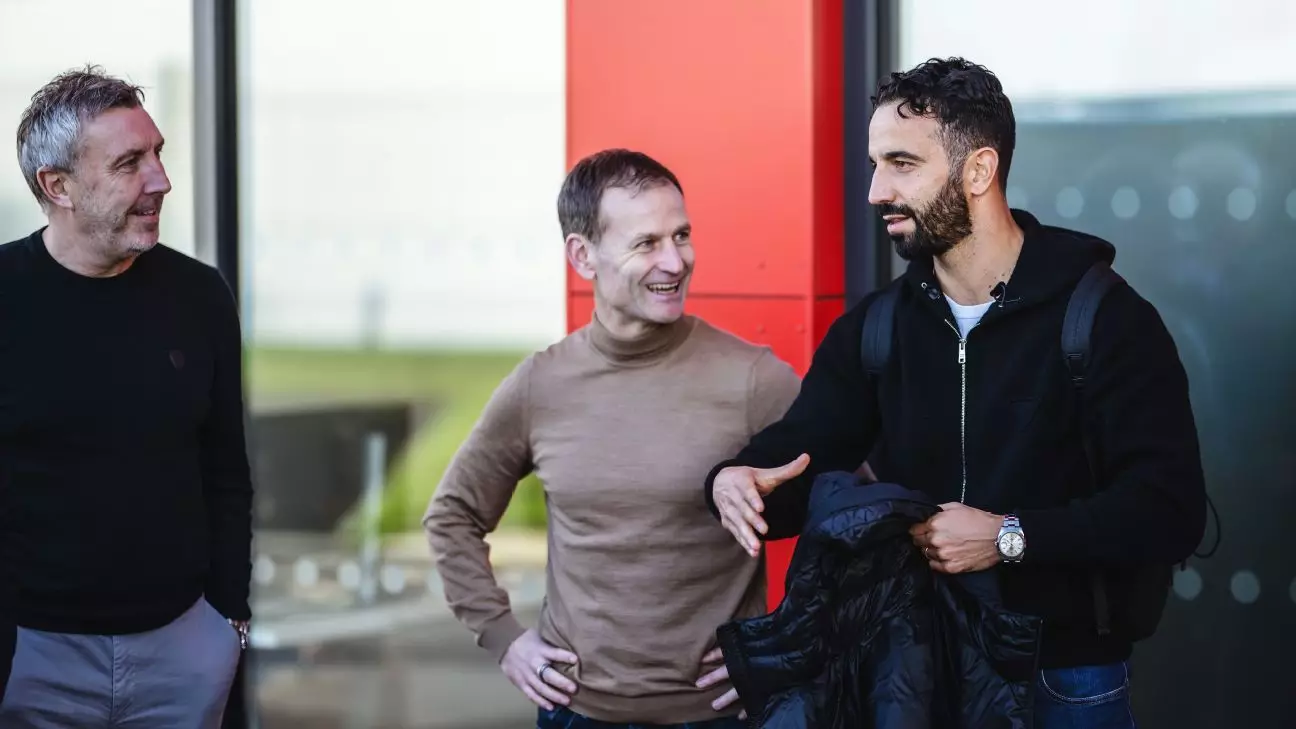Rúben Amorim steps into the high-pressure role of head coach at Manchester United, a position that has seen five previous permanent appointees since Sir Alex Ferguson’s legendary era came to a close in 2013. Each of these coaching tenures—spanning figures like David Moyes, Louis van Gaal, José Mourinho, Ole Gunnar Solskjaer, and Erik ten Hag—has brought its own share of successes and failures. Unfortunately, none have truly restored the glory that was once synonymous with United. Amorim’s arrival signifies a new attempt to reclaim that legacy; he is the latest hopeful at the helm of one of football’s most storied clubs.
Though only 39, Amorim has garnered acclaim across Europe as a young tactician. His track record at Sporting CP, where he captured two league titles, speaks volumes about his capabilities and vision. As he prepares for his first match against Ipswich Town on November 24, it’s clear that he recognizes the enormity of his task. “It’s going to be difficult,” he acknowledges, but the fire in his statement suggests a readiness to face this monumental challenge.
One of the most pressing issues facing Amorim is the tactical overhaul required to implement his preferred 3-4-3 formation. Historically, Manchester United has fielded variations of the more conventional 4-3-3 style, a structure that doesn’t lend itself naturally to Amorim’s plan. Consequently, his challenge will entail reshaping a roster built for one tactical system into another that demands different skill sets and responsibilities.
Currently, the squad is equipped with six senior center-backs, giving Amorim ample options for his three central defensive roles. However, the identification of suitable wing-backs presents a more complex puzzle. With players like Diogo Dalot, Luke Shaw, and Noussair Mazraoui vying for these positions, the transition may require some players to adapt beyond their traditional roles. Additionally, Amorim’s unconventional inclination toward hybrid full-backs opens up the possibility for talents like Alejandro Garnacho and Amad Diallo to contribute defensively, albeit with the added responsibility of tracking back and providing cover—a shift that could challenge these young players.
Defensive and Offensive Responsibility
In Amorim’s tactical setup, the inclusion of two inside forwards, akin to creative No.10s, will redefine how players like Marcus Rashford and Bruno Fernandes approach their game. The expectation of immediate defensive engagement when possession is lost could test Rashford’s adaptability. Known for his attacking prowess, Rashford must find a way to balance his natural inclination for offensive play while adhering to Amorim’s systematic demands.
What must change for the Red Devils to reclaim their competitive edge in the Premier League is not just a sound tactical adjustment, but a consistent work ethic off the ball. Under Erik ten Hag, the scoring struggles were evident, with United registering only 115 Premier League goals in two seasons—significantly lower than rival clubs like Manchester City and Newcastle United. Amorim’s strategy must include an effective method for converting scoring opportunities into tangible results.
Another major concern for Amorim lies in striking choices to spearhead his attack. Key figures like Rasmus Højlund and Joshua Zirkzee will need to sharpen their scoring prowess if the team hopes to climb the league standings. With Højlund showing promise, yet needing to prove his efficiency in the final third, Amorim must replicate the nurturing approach he exhibited with players like Viktor Gyökeres at Sporting, transforming him into a top-tier scorer.
At present, United finds itself in a precarious position in the table—sitting at 13th—and expectations are tempered. For Amorim, this should not be viewed as a disadvantage, but rather as an opportunity to establish his authority and shake up the team’s morale. Progress may not come instantly; however, small wins at home against teams like Everton or Bournemouth could catalyze a much-needed resurgence in confidence.
One of the loudest critiques of Ten Hag’s time at United was the ambiguous identity apparent on the pitch; fans and players alike often struggled to discern the overarching plan. Amorim must address this confusion by developing a clear style of play that blends his philosophy with the realities of the Premier League, leveraging the strengths of the talent at his disposal.
If Amorim can navigate these challenges effectively, he stands at the threshold of transforming Manchester United. The prospect of developing an aggressive, coherent playing style while instilling discipline and resilience can indeed lead to a renaissance in fortunes for a club that has long been searching for its former greatness. The journey starts now, and while the path may be arduous, the reward could be monumental.

